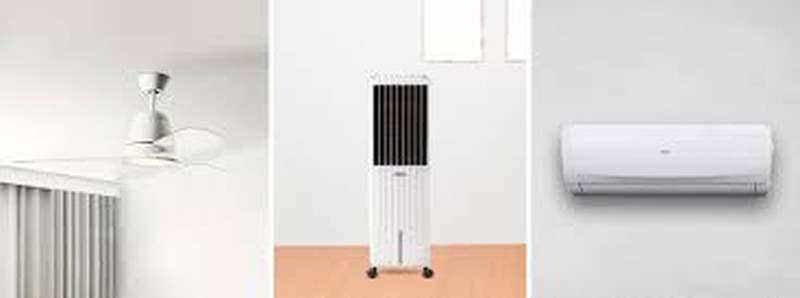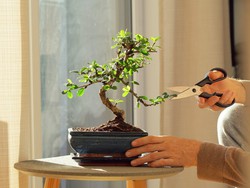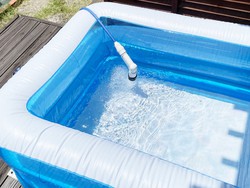What is an evaporator? and its differences with the A/A
The accumulated heat in a house is as annoying as the cold. That is why it is necessary to cool it and there are two possibilities: the most traditional is the air conditioning and the newest is the evaporator, also called evaporative air conditioner or evaporative cooler.
What is an evaporator?
As its name suggests, an evaporator is a device that cools the environment by evaporating water. And it makes use of the enthalpy generated by this process. Enthalpy is defined as the thermodynamic magnitude that expresses the thermal energy flow that develops in certain chemical processes. In simpler words, it is the amount of energy that one medium exchanges with another.
In this case, what makes the evaporative cooler work is the exchange of energy from the water with its environment. By evaporating this produces a large amount of energy that the evaporator uses to cool the environment. Therefore, one of the best brycus tips is that, in certain circumstances, you choose an evaporative cooler instead of an air conditioner. Let's see what those circumstances are and why it's more advantageous.
Differences between evaporator and air conditioning
First of all, there's the savings. The air-conditioning works by means of electricity and consumes a lot. It is estimated that 5% of the energy consumption in a house is due to it. However, evaporators use only water (they consist only of a fan and a small water pump) and their electricity consumption is minimal. The most approximate calculations estimate that evaporative coolers use 85% less than air-conditioning. With only one Kw of consumption, it is possible to cool up to 250 square meters.
In addition, the evaporators are environmentally friendly. Air conditioning uses refrigerant gases and compressors that pollute the environment. However, the former only use water and are therefore cleaner from an environmental point of view.
On the other hand, evaporative coolers work better than open-air air conditioning. On the other hand, air conditioning is better for closed rooms, as it makes more refrigeration circulate. Therefore, the evaporator can be used with open windows and doors, as they continue to recycle the air. But conditioning is only effective with closed ones. If they are open, their air recirculation loses effectiveness.
In the same way, the evaporative air conditioner is perfect for spaces where the internal heat is greater than that of the outside. In these circumstances, the evaporator manages to reduce the temperature by up to 20 degrees and with a minimum energy consumption.
A similar difference can be observed between dry and humid climates. For the former, the evaporative cooler is more advisable. In dry climates the air is warm and, logically, humidity is scarce. Therefore, as the water evaporates, the temperature is considerably reduced and, above all, the environment is humidified, making it more comfortable. In humid climates, however, air conditioning is more recommendable, as the effect of cooling by evaporation of water is limited in humid climates.
As far as the installation is concerned, the evaporator is located outside the house and injects cold into it by means of humidified filters. The air itself is responsible for expelling heat along with excess moisture. In this sense, evaporative air conditioners do not generate humidity problems unless they are installed without taking overpressure into account. That is to say, when it is not calculated that the injected air is equal to the expelled air. In any case, to solve it, it is enough to open a few windows.
Finally, the evaporator is healthier than the air conditioning. The latter can cause certain problems. However, the evaporative cooler helps to remove suspended particles, dust and odours from the room. It even causes fewer insects to enter the room. It also maintains the right relative humidity conditions in the room for your health.
In conclusion, we can add to our brycus tips the use of evaporators in the circumstances and conditions that we have explained to you.
Translated with www.DeepL.com/Translator






Our customers trust us
Opinions of our clients
Receive our news